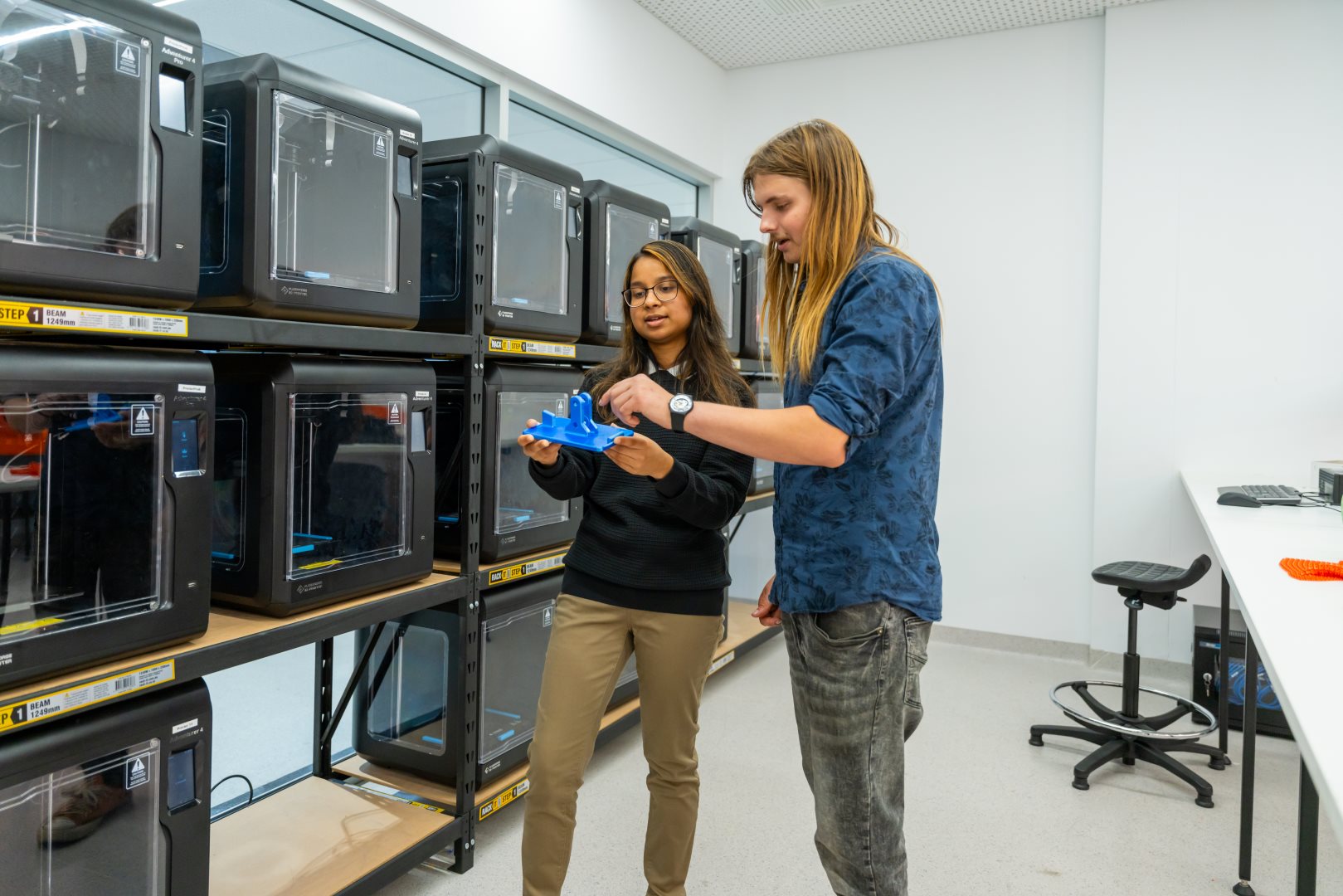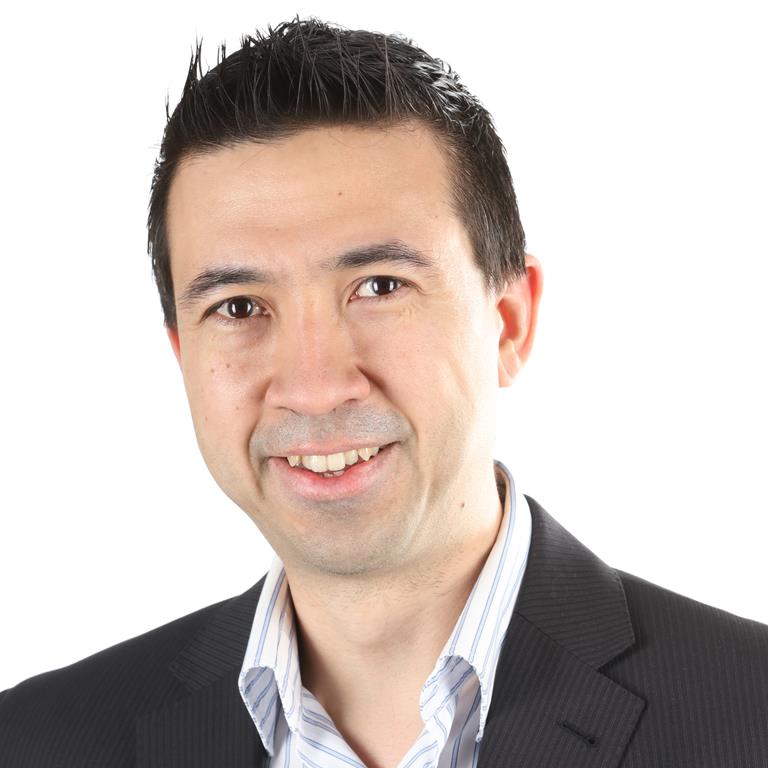Bachelor of Engineering (Honours) (Mechanical and Advanced Manufacturing)
Degree Level Undergraduate
Year 2025
You're considered an Australian student if you are any of the following:
Degree Level Undergraduate
Year 2025
Prerequisites
SACE Stage 2 Math Methods
More info
Assumed Knowledge
SACE Stage 2 Physics
More info
Admissions
Student Profile
Entry Scores
2025 Guaranteed Entry
Year 12 (ATAR-based): 72.00
Year 12 (Grades-based): B,B,B
TAFE/RTO: DIP
View Guaranteed Entry Info
2024 Cut-Offs
Year 12 (ATAR-based):
- Internal: 72.00
TAFE/RTO: Cert IV
View full entry requirements
The admission criteria have been grouped to assist you to easily find the information most relevant to your circumstances. However, you may fit into more than one and the university will consider applicants against each of the relevant criteria.
Certain conditions apply. For more information refer to Appendix 4 of the University's Selection and Entry policy.
Applicants are required to meet one of the following criteria with a competitive result, and demonstrate that they fulfil any prerequisite requirements and essential requirements for admission:
Recent secondary education
Meet any prerequisite requirements with a minimum grade of C- or equivalent
AND
Applicants who have not achieved the Selection Rank required for automatic selection may be selected for any remaining places based on the grades of their year 12 subjects.
OR
Higher education study
OR
Vocational Education and Training (VET)
OR
Work and life experience
This program allows progression to fast-track Masters. Visit Fast-track to Masters in STEM for more information.
1Graduate Destinations Survey 2007-2015 and Graduate Outcomes Survey 2016-2022 (Domestic Undergraduate Full-time Employment Indicator for SA public universities).

In advanced manufacturing, new production techniques, sophisticated modern manufacturing technologies and high-precision and automated machinery are used to improve products and processes. Mechanical engineers in the manufacturing sector use a broad range of knowledge and skills, including information and communication technology (ICT), digital modelling, quality assurance and new organisational practices.
Professionally accredited by Engineers Australia, this degree is strongly hands-on, with significant opportunities to apply engineering theory to real-world challenges. In your final year, you’ll complete a major honours research project as well as an industry-focused design project.
Through the UniSA STEM Professional Practice Program you’ll gain at least 450 hours of skills and competencies to ensure you are graduate career ready. You will have access to a range of engagement activities such as placements, internships, guest lectures, industry panels, site visits, events and networking opportunities. Hear more about the benefits of the UniSA Industry experience from graduates William, Franke and Teresa here.
Enjoy a common first-year across most Engineering degrees enabling you to switch between specialisations and receive credit for completed courses. This means if you change your mind about your Engineering specialisation after first-year, you can change programs and still complete your degree in 4 years full-time. Start now, decide later.
On-campus teaching for this program is based at the Mawson Lakes campus. Only 20 minutes from the city centre with easy parking. The Mawson Lakes campus is also accessible by bus and train with the Mawson Lakes train station only a short walk.
If you haven’t completed SACE Stage 2 Mathematical Methods and want to study engineering, consider our Bachelor of Engineering (Honours) (Flexible Entry). You’ll study first year courses, and catch up on the required prerequisite, before transferring into your preferred engineering specialisation with up to one year of credit.

In your first year you will develop a strong foundation in engineering including computer programming, applied mathematics and physics. As you advance in your studies you will explore the latest in manufacturing such as intelligent systems, and industrial actuation and automation. Topics will include:
Our UniSA STEM Professional Practice Program allows you to apply the skills and knowledge you've acquired throughout your degree in real-world settings.
At least half of the honours year will involve a major project. You will take the lead as an engineer in a project environment, working with industry, a government organisation, or an academic research area.
You can gain an extra qualification and broaden your career prospects by completing a Diploma in Languages.

With the focus of this degree on real solutions for real-world engineering problems, you will develop advanced knowledge and practical skills in:
You will learn in purpose-built, industry standard facilities, equipped with software platforms and collaborative digital environments that will prepare you for Industry 4.0.
An internship in your final year will see you complete projects that tackle engineering challenges for industry clients.
All of our Engineering Honours programs share a common first-year, so choosing this degree offers ultimate flexibility. Should you wish to pursue a different specialty after completing your first-year, you can switch to an alternative Engineering program and receive credit for the courses completed. Start now, decide later.
4+1 Pathway to Masters
Are you interested in gaining a postgraduate degree with just one extra year of study? You can package the Bachelor of Engineering (Honours) (Mechanical) with the Master of Engineering (Engineering Management) with our Fast-track to Masters programs. This unique offering allows you to develop advanced expertise and broaden your career opportunities. You will graduate in just five years, instead of the typical six.
Explore our purpose-built mechanical engineering facilities at the UniSA Mawson Lakes campus.

Overall, engineering vacancies have increased by 22 per cent in 2022 and shows engineering as one the strongest professions in demand in Australia1.
Careers to consider:
Explore a range of engineering and construction careers here.
1Engineers Australia: Australian Engineering Employment Vacancies, February 2023
This program is professionally accredited by Engineers Australia and is designed to meet the requirements for graduate membership of Engineers Australia and comparable international institutions.
Have any questions? We're here to help! Contact Adelaide University's Future Student Enquiries Team.
Applying to study with us:
Australian
There are other pathways you can follow to study this degree, including:
International
There are other pathways you can follow to study this degree, including:
This degree is available for deferment. This option is made available by responding to your offer during the application process via the SATAC website. Applicants who receive an offer into a midyear degree are eligible to defer for six months.
Every year, over 2,500 UniSA students are supported in their studies through scholarships and grants worth millions of dollars. Check out the scholarships below. One of them may be perfect for you. Visit our scholarships page for more.
$5,000 scholarship for South Australian students with an ATAR of 99 who enrol to study a UniSA undergraduate degree.
Up to $10,000 per annum (full time) for South Australian students who obtain an ATAR of 99.95 or IB equivalent and enrol to study at UniSA.
Our campuses are home to fantastic facilities including modern lecture theatres, libraries, workshops and laboratories, as well as spaces that simulate real work environments. But you’ll also discover that your journey at UniSA is about social experiences, healthy living and getting involved. You’ll find student sports and fitness facilities, community clinics, tech zones and chill-out spaces. There are campus sport activities to keep you active, and if you are keen to explore the social side of university life, there are movies, cooking demonstrations, parties and loads more.
Adelaide also has a variety of accommodation options to suit different requirements and budgets. Options include dedicated student accommodation and private rentals. See our long-term accommodation pages, or explore our student accommodation by Scape on Bank Street in Adelaide’s lively cultural precinct, an ideal location for students. It is within easy reach of UniSA’s city and metropolitan campuses, Rundle Mall shopping, the Central Market, Chinatown, and the West End’s vibrant nightlife. It is also across the road from the Adelaide train station, and on bus and tram routes.
You will have access to the latest industry technology and tools in our engineering spaces:

I work on a number of consultancy and research projects in resource-efficient product and service innovation, sustainable industry and community transformation, and low-carbon urban precincts. I am particularly dedicated to incorporating social, economic, and environmental perspectives into tertiary engineering education to achieve sustainability in engineering practice.

The way you apply for UniSA will depend on the undergraduate or postgraduate coursework degree you're interested in studying.
The majority of applications are made via the South Australian Tertiary Admissions Centre (SATAC). Check out more information on the SATAC website and follow the appropriate process for your degree of interest.
There are a small number of degrees that you need to apply for through direct application processes. The process you need to follow will be listed on the 'How to Apply' section of the degree homepage, but you'll also be taken to where you need to go if you hit the 'apply' button.
If you are interested in studying one of our 100% online degrees you'll need to apply directly to UniSA Online.
You can find more information about the application processes for UniSA on our How to Apply webpage.
If you're more interested in applying for a postgraduate degree by research, check out and follow the information in our step by step guide to applying.
Applications for all degrees will close ahead of study commencing, but the timelines may vary for undergraduate and postgraduate degrees.
The deadline to apply to study a degree at UniSA for semester one (commencing late February) and be guaranteed equal consideration is generally in very late November or early December. While you may be able to apply after this date, you are not guaranteed to be considered equally with other applicants and your application may not be assessed in time for the main round of offers. More competitive degrees may not make any offers after the main offer round. Find more information on the Key Dates section of the SATAC website, but you can also call the Future Student Enquiries team for more information on 08 8302 376.
Many postgraduate by coursework degrees do not have set closing dates. The exceptions are highly competitive degrees, so it is best to check – either on the degree homepage on the SATAC website or by checking with our Future Student Enquiries team.
As most postgraduate applications are assessed as they are submitted and offers are continuous, there are no set closing dates for applications. Degrees can be filled and closed with little notice so it is best to apply as soon as possible to avoid missing out on a place. For more information, please contact our Future Student Enquires team on (08) 8302 2376 or submit an enquiry.
You may be eligible for credit or advanced standing for your chosen UniSA degree based on your previous studies, if they are in a related area and completed within a certain timeframe. Receiving credit or RPL will reduce the number of courses you undertake within the degree, and may also reduce the overall duration of your degree. You can read more about our pre-existing credit agreements through our online Credit Assessor. If you have related industry experience, you may also be eligible to receive recognised prior learning (RPL) for this experience. Credit and RPL is assessed by the Program Director once you've received an offer, and you apply through UniSA's current student experts, Campus Central.
Future Student Enquiries welcomes the opportunity to meet with you to discuss your study options at UniSA. We can discuss degree information, entry requirements and pathways, applications, general career outcomes and student life, so you have the information to make the best study decision for your future. Head to our Book an Appointment webpage to find a date and time to speak with us, and take your next steps on journey to university study.

Hear from Niyo Samwel, a UniSA mechanical engineering graduate, about how his degree helped him get to where he is today.